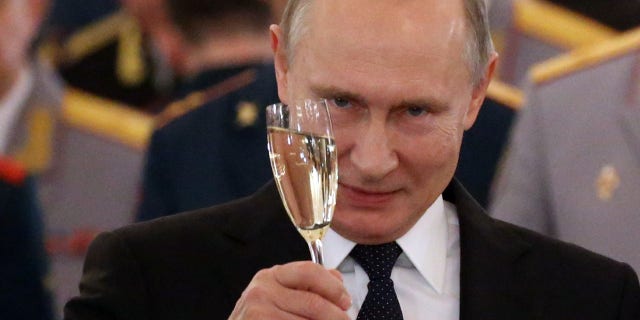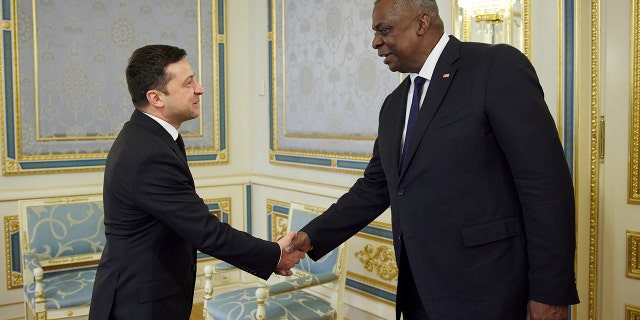Tuesday, December 28, 2021
Tucker Carlson Tonight 12/27/2021
Thursday, December 23, 2021
Washington Prepares To Fail In Ukraine
Friday, December 17, 2021
The Joe Piscopo Show 12-15-2021
Thursday, December 16, 2021
Black Market Leadership® Podcast Part 2 of 2
Ep. 38 - Margin of Victory, Part 2 of 2
part 2 of podcast (audio)
https://blackmarketleadership.libsyn.com/ep-38-margin-of-victory-part-2-of-2
part 2 video
https://youtu.be/3eJk0svHzOo
Backup video link:
https://www.bitchute.com/video/vW45XKYpPthO/
Info on Part 1 posted last week (12/8/2021):
Black Market Leadership® Podcast Part 1 of 2
Ep. 37 - Margin of Victory, Part 1 of 2
part 1 of podcast (audio):
https://blackmarketleadership.libsyn.com/ep-37-margin-of-victory-part-1-of-2-1
part 1 video
https://www.youtube.com/watch?v=hvlPzvjQQvc&t=3s
Backup video link:
https://www.bitchute.com/video/MOF68WxSFFxG/
Monday, December 13, 2021
The Ghost of Ukraine’s Future
Saturday, December 11, 2021
US military man’s take on Berlin’s new foreign minister
By JAMES CARDEN
Incoming German Chancellor Olaf Scholz has tapped Green Party co-leader Annalena Baerbock as foreign minister.
Baerbock, a 40-year-old diplomatic novice, has consistently espoused liberal interventionist views that one left-wing American news site has described as a combination of “aloof complacency, ignorance and aggressiveness.”
To help understand the implications of this appointment, Douglas Macgregor (left), a retired US Army colonel and an expert on US-German relations, was asked about what he thought of the incoming German foreign minister.
Macgregor, a fluent German speaker who holds a doctorate from the University of Virginia, was former president Donald Trump’s choice to become US ambassador to Germany. Ultimately, he served as senior adviser to acting secretary of defense Christopher Miller in the last months of that administration.
During his military career, Macgregor was awarded a Bronze Star with a V device for valor as a tank commander in the first Gulf War
This interview has been edited for length and clarity.
James Carden: Does the incoming German foreign minister, Annalena Baerbock, represent a kind of break with the more traditional, more cautious German foreign policy we saw under outgoing chancellor Angela Merkel and her predecessors?
Douglas Macgregor: Very much so. I think at least insofar as the things Baerbock has said, she’s likely to be a profound break from the past. It might be useful to go back a little bit to talk about Merkel, because Merkel represented a certain amount of continuity. And I would argue that the Germans are not alone in this.
All the Germanic countries [in Europe] are very similar in the sense that the populations are conservative. They like continuity, stability and order. Austrians, Germans, Swiss, Dutch, Danes, Swedes, Norwegians … everyone largely falls into the same category. “What do we want? Well, we want stability. We want prosperity. We want order.”
And Merkel, even though I didn’t necessarily sign on for all of her thinking, represented all that, much like her predecessors.
And this has been true in the history of the German-speaking peoples and in the Germanic countries for centuries. This is nothing new. So what is new about Baerbock?
First of all, she is unusually young. She has a different kind of background in education. She spent a year as an exchange student in Florida, much as I spent a year as an exchange student in Germany.
She was born into a Germany that wasn’t quite united yet, but a Germany that was extraordinarily prosperous; in 1980, West Germany had a very high standard of living. So she grows up in this environment without strife, without struggle, without conflict, without poverty, without any of the things that her predecessors knew.
In other words, there’s no history of experience with the things that Germany went through during and after World War II. And as a result, she sees the world very differently. She is more American in her outlook, quite willing to moralize.
JC: She seems like she would fit right in with “humanitarian” war hawks like Samantha Power, Susan Rice and, above all, former US secretary of state Hillary Clinton, to whom Baerbock has compared herself. To me she sounds alarmingly like the liberal interventionists in the United States who, along with their neoconservative allies, dominate the US foreign-policy establishment.
DM: She’s a crusader of the type you see in Washington, DC, all the time. But this is a big break from the past for the German Foreign Office. Even after World War II and into the ’70s and ’80s, we had people whose families were involved in foreign affairs in Germany as diplomats during the interwar period, and even before World War I.
In the old foreign offices of Germany, people spent a great deal of time trying to understand the interests that shaped behavior in the international environment. In other words: What are Russia’s interests? What are the interests in Prague? What are the interests in Paris or in London? That’s a very different approach to foreign affairs than we’ve heard from Baerbock.
She seems to have no sense of the interests that drive things around the world in all of these major capitals. No sense of that at all. [Her perspective seems to be,] “Our interest is in making the world a better place.” [For Baerbock and similar-minded politicians,] everything is about reshaping the world to conform to some sort of ideologically pure and good and morally upright picture that always fails in the end, frankly.
Baerbock is a crusader looking for a reason to crusade. And that’s a problem.
JC: And it becomes an even more dangerous problem given the current tensions now involving Russia and Ukraine. What is concerning is that Merkel’s caution may now give way to a kind of Atlanticist recklessness embodied by Baerbock. So I’m wondering, as you are a career military officer who has actually been under fire, why do we seem so close to a war between Russia and the West?
DM: Well, a couple of quick points. First of all, Baerbock, along with US Secretary of State Antony Blinken and the other so-called luminaries that we currently have running the State Department, [is] now dealing with Sergey Lavrov, the Russian foreign minister.
I’ve met him. I had the good fortune to spend almost an hour with him and listening to him. He’s one of the most exceptionally talented and intelligent men I’ve ever met. And he is very much in the traditional mold of great European statesmen.
This is someone who understands [Russia’s and other countries’] interests, and he is infinitely more gifted in pursuing those [interests] than anyone … [the US has].
And … [in Russia, President Vladimir Putin and Foreign Minister Lavrov] are at a loss to understand … [the US] because we don’t seem to be interested in our own interests. We tend to embrace other … [countries’] interests and then force them down the throats of the Russians and others. They [Putin and Lavrov] really don’t understand us.
But what’s worse is that we’re busy pursuing the same sort of illusory policies inside the military that Baerbock and others want to pursue internationally.
And the Russians know this, so they are now telling Washington and Brussels, “Look, we’ve gone about as far as we can go with you and we’ve made it very clear what we will not tolerate on our borders. We will not tolerate it if Ukraine becomes a platform for the projection of armed hostility toward Russia. And otherwise, we’re not interested in having someone on our borders who is committed to subverting our government and our social order.”
… [The Russians are] telling us that unless … [the US is] willing to sit down and come to arrangements that recognize the limits of our interests and theirs, which essentially means no more expansion of NATO, then they are going to take military action.
This article was produced by Globetrotter, which provided it to Asia Times, in partnership with the American Committee for US-Russia Accord.
https://asiatimes.com/2021/12/us-military-mans-take-on-berlins-new-foreign-minister/
Friday, December 10, 2021
US going to war with Russia over Ukraine would 'court destruction of the known world': Macgregor
https://www.foxnews.com/media/united-states-war-russia-over-ukraine-court-destruction-macgregor
Col. Douglas Macgregor, a retired Army officer and tank commander during the Gulf War, told Fox News on Tuesday that President Biden and the neoconservatives in both the Democratic and Republican parties are courting global turmoil with their current overtures toward Russia and its leader, President Vladimir Putin.
Macgregor told "Tucker Carlson Tonight" that Washington's political class has become the "land of the stupids" – noting that by leaving open the potential of taking action, should Putin invade Ukraine, Kiev and its presumed U.S. reinforcements would likely be defeated.
He noted that Biden, the Democrats, and some Republicans in Congress including Sens. Roger Wicker of Mississippi and Joni Ernst of Iowa, are making remarks about Russia 80 years after the attack on Pearl Harbor.

MOSCOW, RUSSIA - DECEMBER, 28 (RUSSIA OUT) Russian President Vladimir Putin (Photo by Mikhail Svetlov/Getty Images)
The 1941 attack on the Hawaiian military base "dragged us into a two-front war for which we were completely unprepared," he said on "Tucker Carlson Tonight."
"Listening to the comments by Wicker and others, it strikes me that Joe Biden has lots of friends on the Hill, all of which are living with him in the early '90s. They seem to think that Russia is prostrate -- that Russia has no alternative but to submit to whatever we tell it to do, which is ridiculous."
The retired officer added that if any potential conflict turned nuclear to "rescue [a U.S.] conventional failure, then we are courting the destruction of the known world."
Macgregor went through several possible outcomes, including the conflict reaching across the Black Sea to Turkey, which would further complicate matters, as well as a regional "bloody war" that would likely spark a refugee crisis into Eastern Europe.

Ukrainian President Volodymyr Zelenskyy, left, shakes hands with U.S. Defense Secretary Lloyd Austin III during their meeting in Kiev, Ukraine, Tuesday, Oct. 19, 2021. (Ukrainian Presidential Press Office via AP)
Host Tucker Carlson added that Ernst's recent remarks about potentially telling Putin the U.S. won't allow further construction of the NordStream II pipeline – which stagnated during the Trump years and was assented to later by Biden – would not hurt Russia but instead stymie Germany and Luxembourg during the coldest months of the year.
"We have one interest, Tucker: To prevent a war from breaking out between Ukraine and Russia," Macgregor later continued, adding that neocons appear to be on a "revenge mission" against a country they essentially still view as the enemy U.S.S.R., which dissolved on Christmas Day 1991 when the Soviet flag last was lowered from the Kremlin.
He said Russia is now essentially reverted to its pre-Soviet construction: "a Russian State that rests on the foundation of Orthodox Christianity – it's back to what it had been for 1,000 years."
"We should celebrate that, not destroy it," he said.
Wednesday, December 8, 2021
Responsible Statecraft
Are the hawks taking flight over Berlin?
The elevation of Green Party co-leaders Annalena Baerbock and Robert Habeck to key ministries should trouble restrainers.
DECEMBER 8, 2021
Written by
James Carden
https://responsiblestatecraft.org/2021/12/08/are-the-hawks-taking-flight-over-berlin/
Black Market Leadership® Podcast Part 1 of 2
Ep. 37 - Margin of Victory, Part 1 of 2
Tucker Carlson Tonight 12/7/2021
Biden and Putin Meet Virtually As Tensions Rise In Ukraine
Republican Senator Says He Wouldn't "Rule Out" Military Strike On Russia
Sunday, December 5, 2021
THE AMERICAN CONSERVATIVE
2021 Foreign Policy Conference
Edited for Colonel Douglas Macgregor participation clips
If you would like to watch the entire 4 hours and 48 minutes, click on the YouTube video below:












